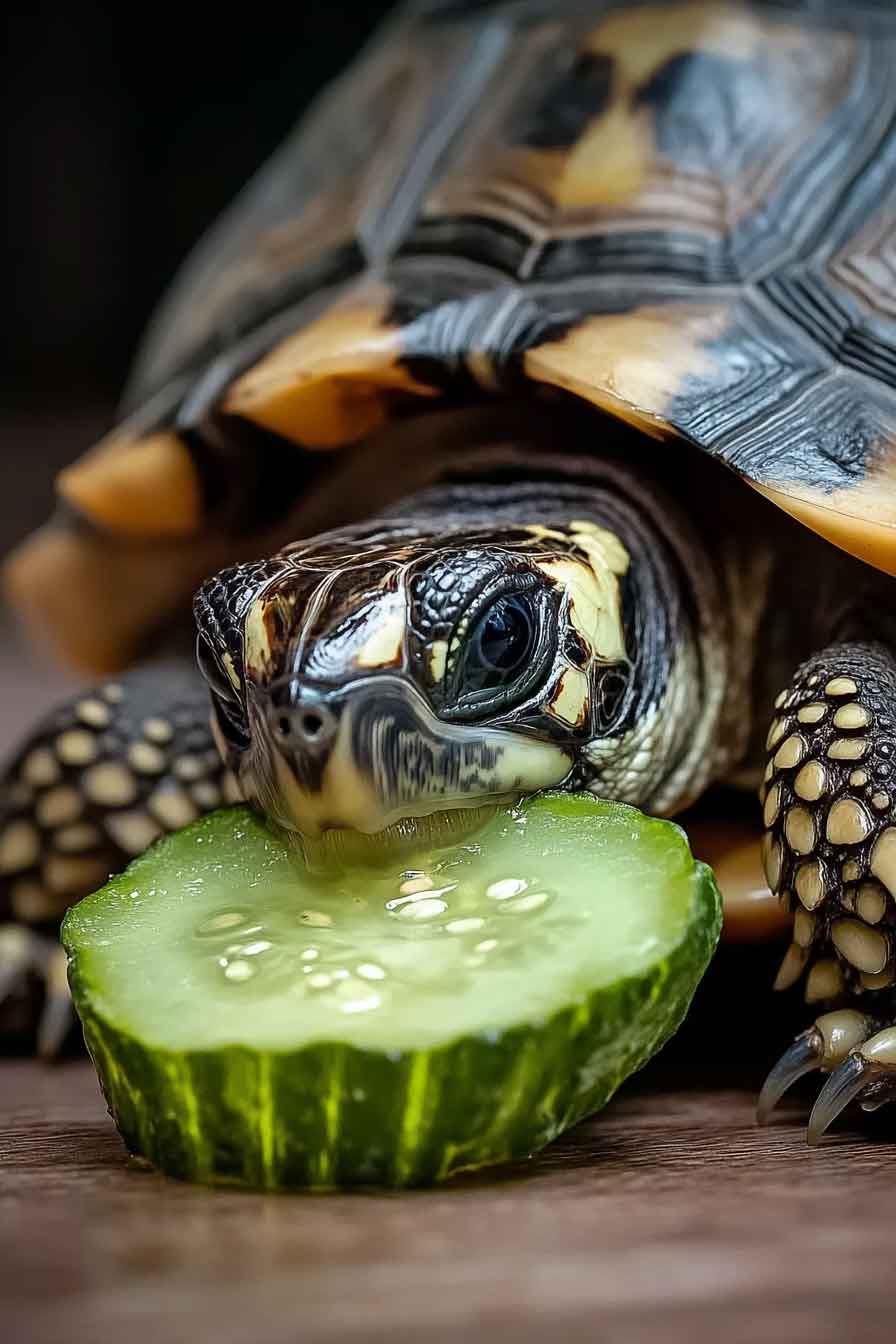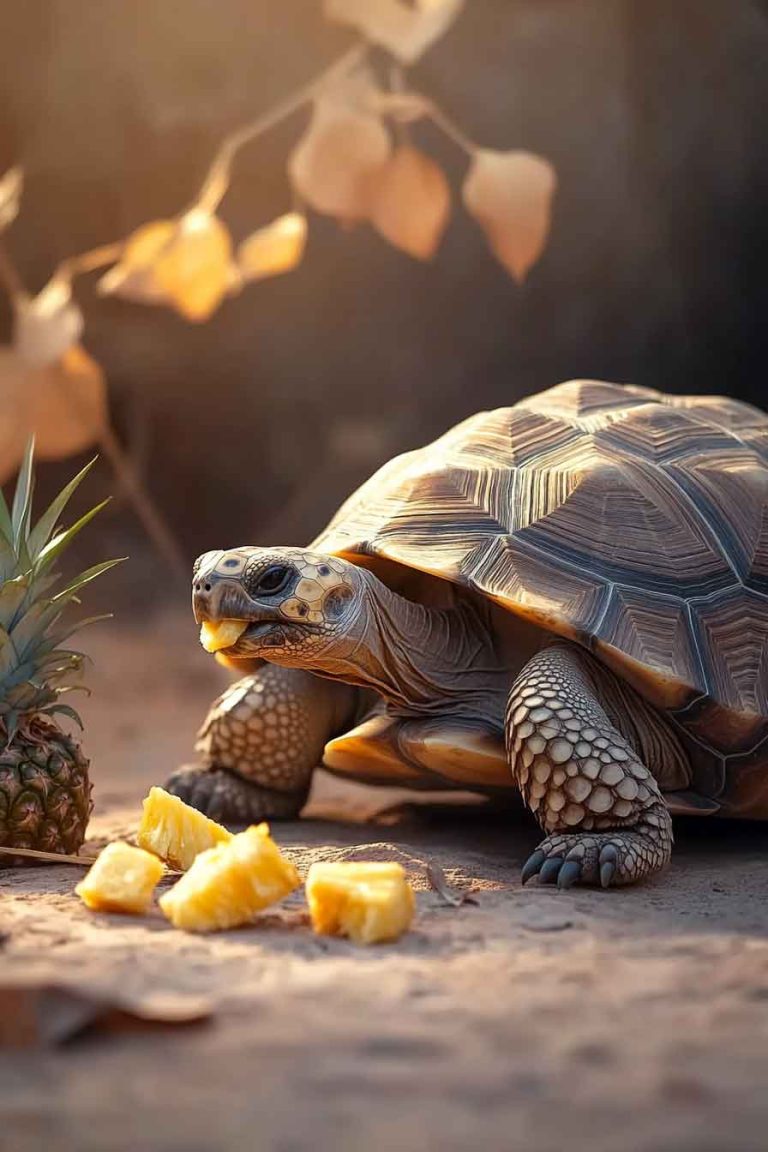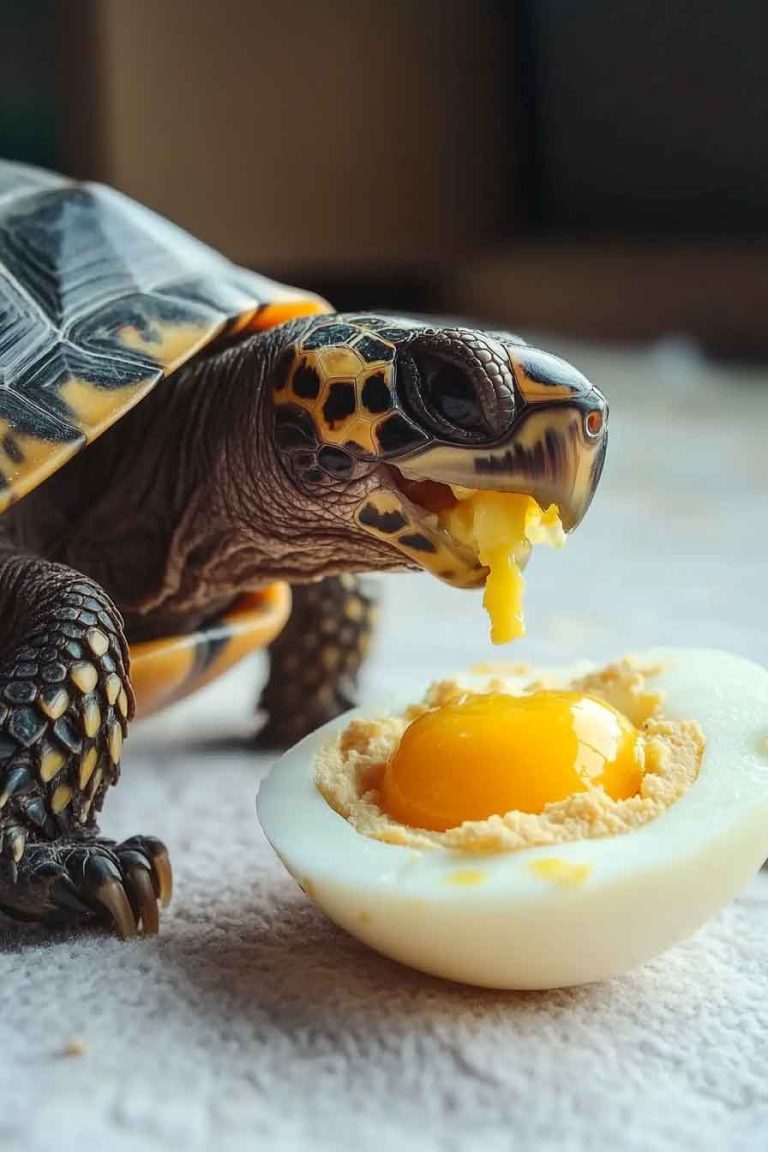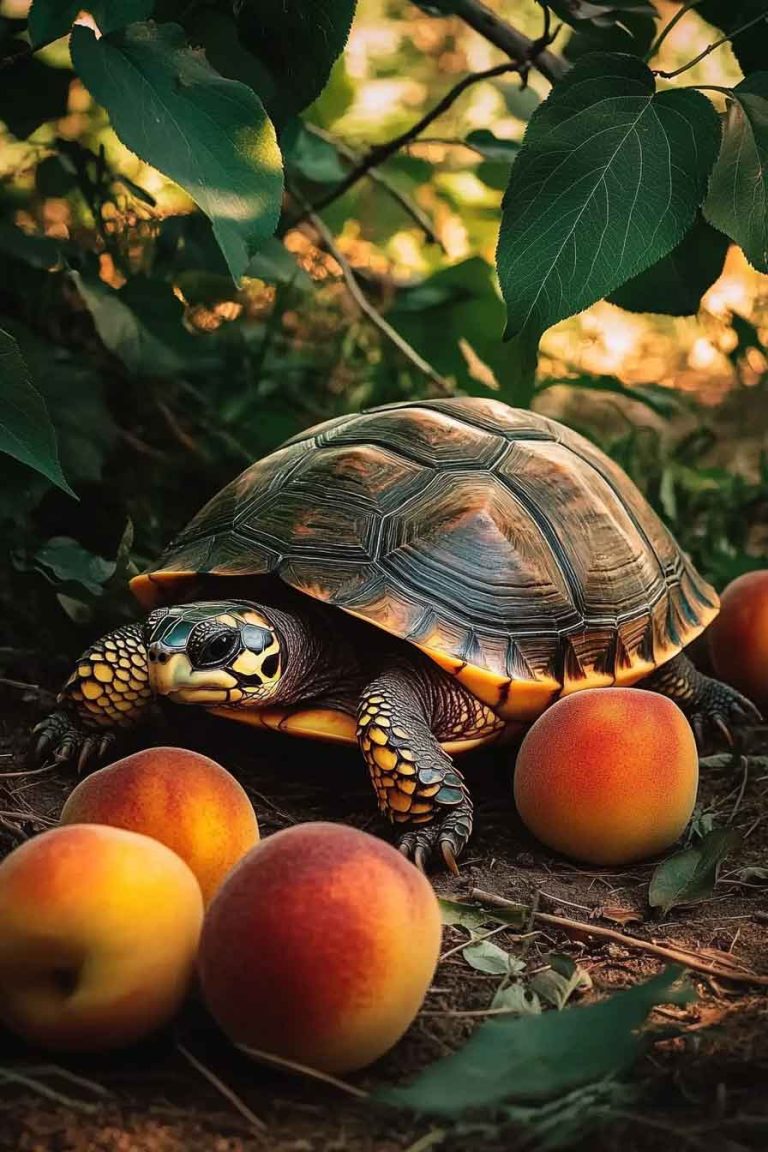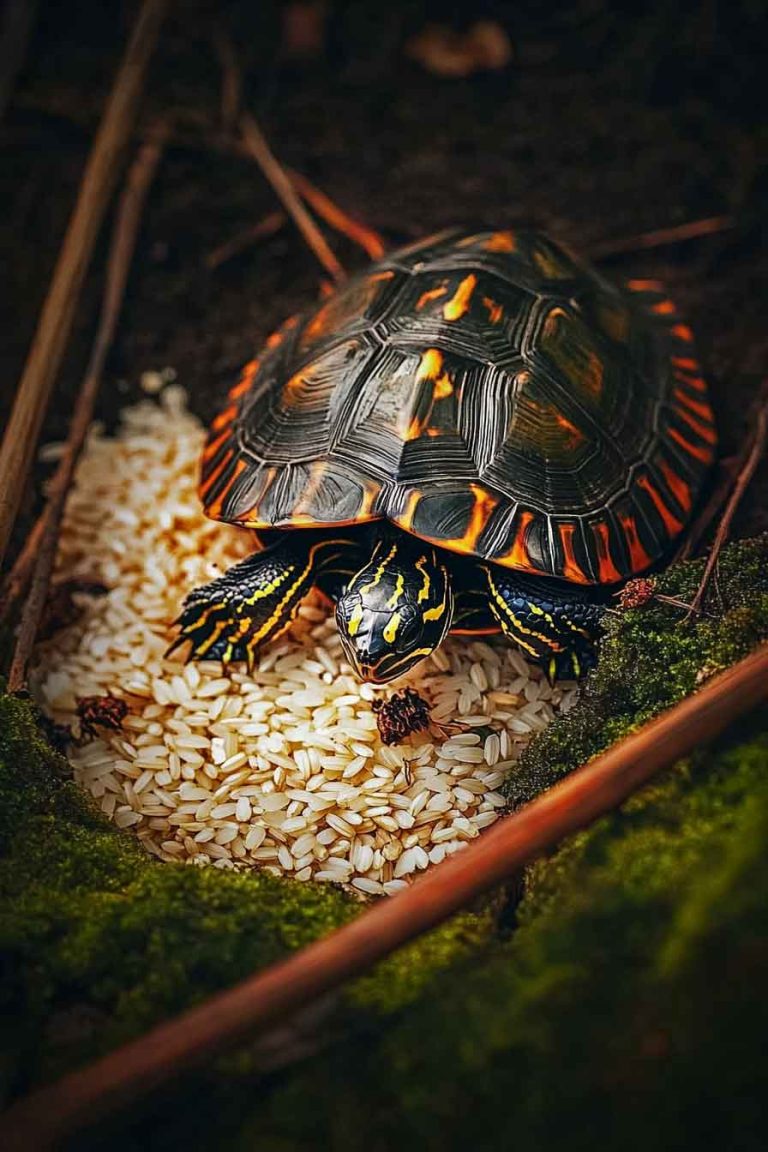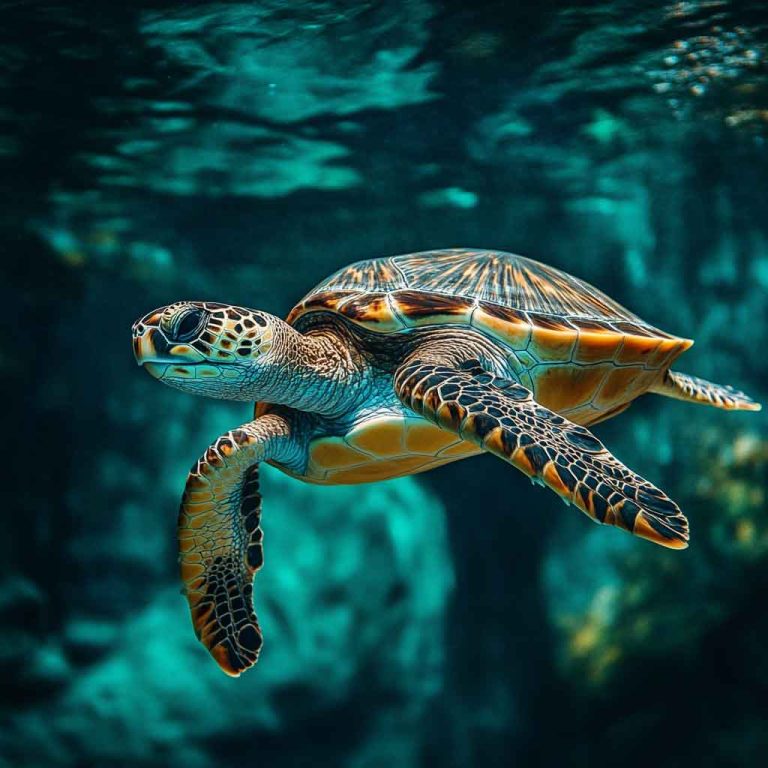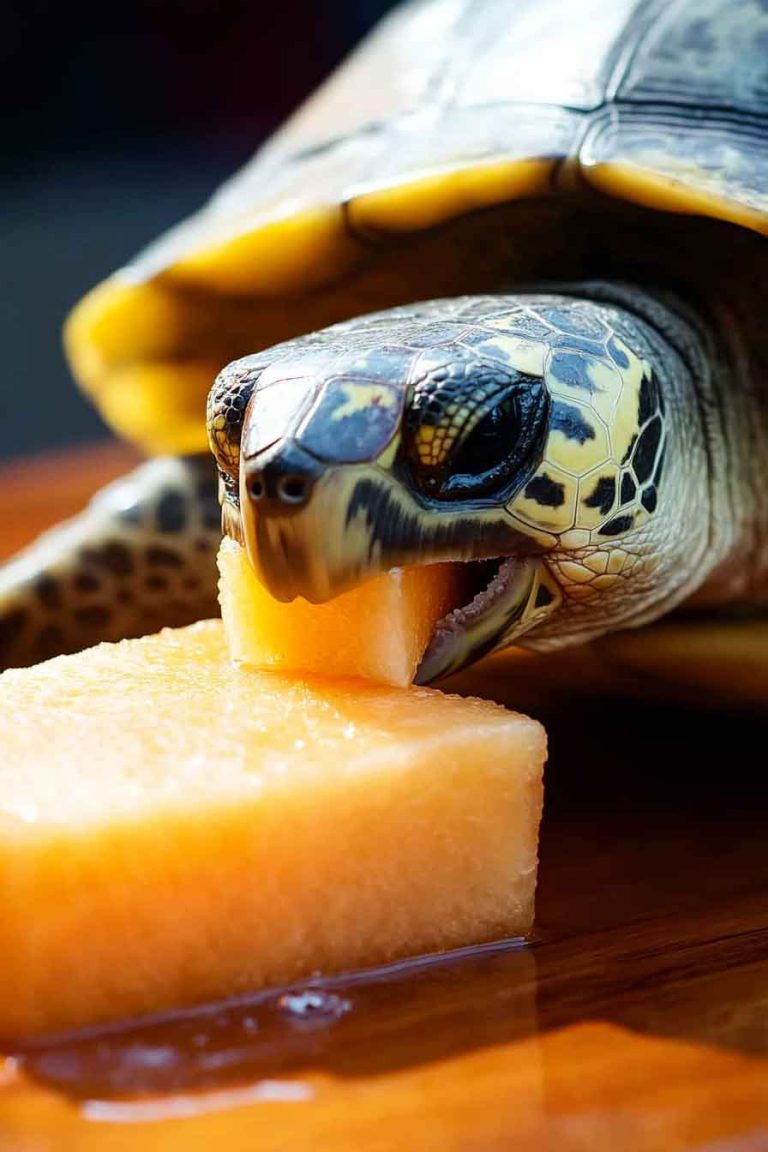Can Turtles Eat Pickles? (Full Truth You Need to Know Now)
If you’re like me and have a pet turtle, I bet you’ve found yourself wondering if you can share some of your favorite snacks with your shelled companion. I know I have! Just last week, I was enjoying a crispy pickle and caught my turtle giving me those curious eyes. It got me thinking –…
If you’re like me and have a pet turtle, I bet you’ve found yourself wondering if you can share some of your favorite snacks with your shelled companion. I know I have! Just last week, I was enjoying a crispy pickle and caught my turtle giving me those curious eyes. It got me thinking – can turtles eat pickles?
The short answer is absolutely not – turtles cannot and should not eat pickles under any circumstances. Pickles are extremely harmful to turtles due to their high sodium content, acidic nature, and various preservatives that can seriously damage your turtle’s health.
In this article, I’m going to share everything I’ve learned about why pickles are so dangerous for turtles, what happens if your turtle accidentally eats one, and what you should feed them instead. Trust me, after reading this, you’ll understand exactly why I keep my pickles far away from my turtle tank!
Can You Feed Pickles To Your Pet Turtle?
Let me be crystal clear here – never feed pickles to your pet turtle. I can’t stress this enough! Even though pickles start as cucumbers (which might seem harmless), the pickling process transforms them into something completely toxic for our turtle friends.
When I first got my turtle, I made the mistake of thinking that if something was a vegetable, it must be okay for turtles. Boy, was I wrong! Pickles are essentially cucumbers that have been soaked in a brine solution containing massive amounts of salt, vinegar, and various spices and preservatives.
Let me break down what’s actually in a typical pickle (per 100 grams):
- Sodium: 1,208 mg (This is absolutely massive for a turtle!)
- Carbohydrates: 2.26 g
- Sugar: 1.06 g
- Protein: 0.33 g
- Calcium: 26 mg
- Phosphorus: 14 mg
- Vitamin C: 4 mg
- Potassium: 23 mg
- Magnesium: 4 mg
Just looking at these numbers makes me cringe when I think about what this could do to a turtle’s delicate system. The sodium content alone is through the roof – that’s more salt than a turtle should consume in months, not in a single serving!
The pickling process also introduces acetic acid (from vinegar), various spices like dill, garlic, and sometimes onion powder, plus preservatives like sodium benzoate. Every single one of these ingredients is problematic for turtles.
I learned the hard way that turtles have incredibly sensitive digestive systems that simply cannot handle processed foods like pickles. Their bodies are designed to process natural, fresh foods – not the chemical cocktail that makes up a pickle.
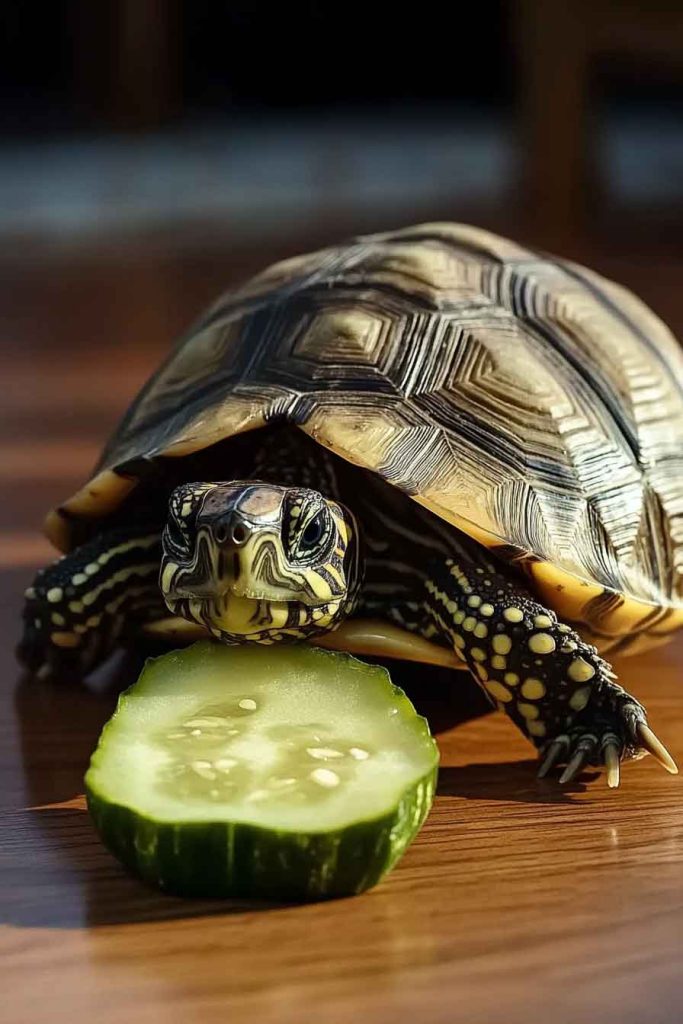
Do Turtles Like Pickles?
Here’s something interesting I’ve observed – turtles might actually be attracted to pickles initially. The strong smell and the fact that it originated from a cucumber might make some turtles curious enough to try a bite.
However, I can tell you from research and talking with other turtle owners that most turtles will quickly reject pickles once they taste them. The overwhelming saltiness and acidic taste usually causes them to spit it out immediately.
But here’s the scary part – some turtles might actually continue eating it, especially if they’re very hungry. Turtles don’t have the same taste preferences we do, and they don’t instinctively know what’s harmful to them. This is why it’s our responsibility as turtle owners to make sure they never get access to dangerous foods like pickles.
I’ve also noticed that the smell of pickles can sometimes attract turtles from across the room. This means we need to be extra careful about leaving pickle jars open or pickle remnants where our turtles can reach them.
Health Risks for Turtles Eating Pickles
Let me tell you about the serious health problems that pickles can cause for turtles. I’ve researched this extensively, and the risks are genuinely frightening:
Severe Dehydration and Salt Poisoning
The biggest danger comes from the enormous sodium content in pickles. When I learned that a single pickle can contain over 1,000 mg of sodium, I was shocked. To put this in perspective, turtles should consume less than 50 mg of sodium per day!
Excessive sodium causes several immediate problems:
- Severe dehydration as the salt pulls water from the turtle’s body
- Kidney damage from the organs working overtime to process the salt
- Electrolyte imbalances that can affect heart function
- Swelling and bloating as the body retains water to dilute the salt
I spoke with a veterinarian who told me about a case where a turtle ate just half a pickle and ended up hospitalized for three days due to salt poisoning. That really drove home how serious this is.
Digestive System Damage
The acetic acid from vinegar in pickles is incredibly harsh on a turtle’s digestive system. Unlike humans, turtles cannot handle acidic foods well at all. Here’s what happens:
- Stomach lining irritation leading to pain and inflammation
- Acid burns in the mouth, throat, and esophagus
- Severe diarrhea which further dehydrates the turtle
- Vomiting which is particularly dangerous for turtles since they can’t vomit as easily as mammals
I learned that the pH level of pickle juice is typically around 3.5-4.0, which is far too acidic for a turtle’s system designed to handle foods with neutral to slightly alkaline pH levels.
Calcium Absorption Problems
Looking at the calcium to phosphorus ratio in pickles, I found another major concern. While pickles have some calcium, the overall mineral balance is completely wrong for turtles.
Turtles need a 2:1 ratio of calcium to phosphorus for proper shell and bone development. The high sodium content in pickles actually interferes with calcium absorption, potentially leading to:
- Metabolic Bone Disease (MBD)
- Soft shell syndrome
- Weak, brittle bones
- Deformed shell growth
Chemical Preservative Toxicity
Modern pickles contain various preservatives that are safe for humans but toxic to turtles:
- Sodium benzoate can cause liver damage
- Calcium chloride (used as a firming agent) adds even more harmful minerals
- Artificial colors and flavors that turtles cannot process
- Sulfites which can cause respiratory problems
I was amazed to learn how many chemicals go into something as simple as a pickle. Each one of these represents a potential poison to our turtle friends.
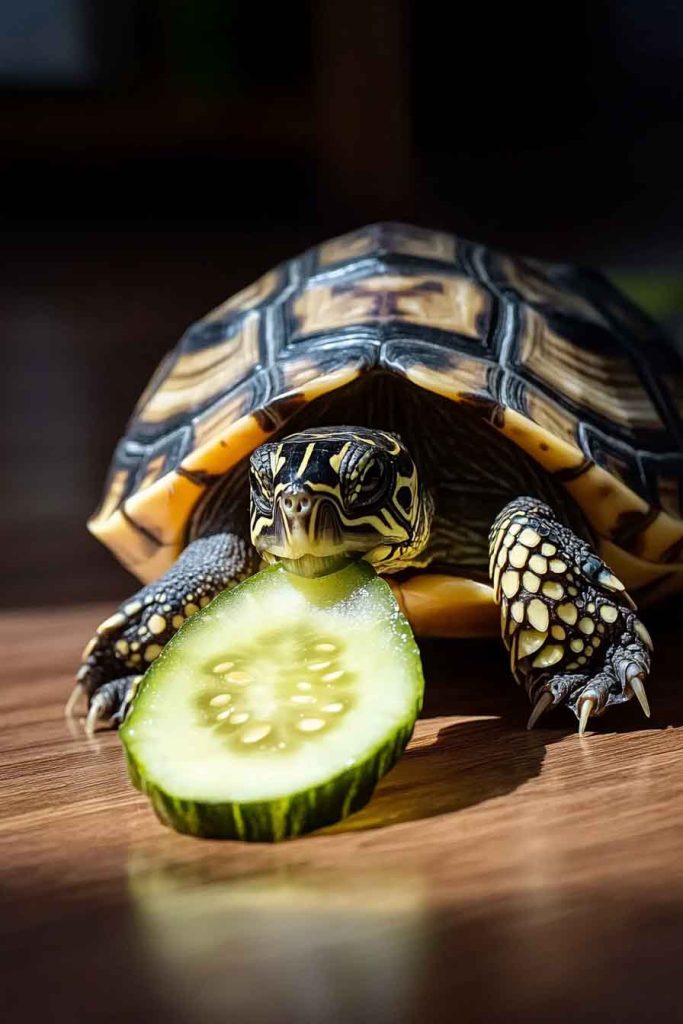
How Much Pickles Should Turtles Eat?
The answer is simple and non-negotiable: zero. Not a tiny piece, not a lick, not even the pickle juice. There is no safe amount of pickle for any turtle to consume.
I know some people might think, “Just a tiny bit won’t hurt,” but I can’t emphasize enough how wrong this thinking is. Even a small piece of pickle contains enough sodium to seriously harm a turtle.
Think about it this way – if a full-grown human ate the equivalent amount of salt relative to their body weight that’s in a pickle piece for a turtle, that human would be in the hospital. Turtles are much more sensitive to these compounds than we are.
Can You Feed Pickles to Baby Turtles?
This question makes me especially concerned because baby turtles are even more vulnerable than adults. Absolutely never give pickles to baby turtles!
Baby turtles have:
- Underdeveloped kidneys that cannot process excess sodium
- More sensitive digestive systems that are easily damaged by acid
- Smaller body mass making even tiny amounts of toxins more concentrated
- Developing immune systems that can’t fight off the effects of chemical preservatives
I’ve read heartbreaking stories from turtle owners who lost baby turtles after they accidentally got into human food. The smaller the turtle, the more dangerous any toxic food becomes.
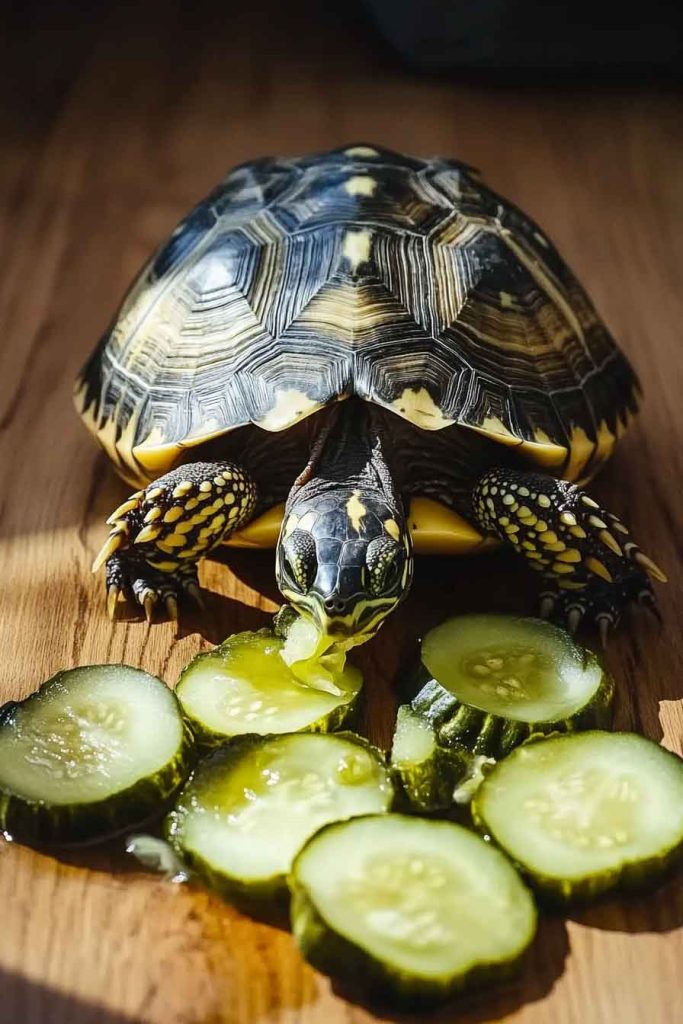
What to Do If Your Turtle Eats Pickles
If your turtle has eaten pickles, don’t panic, but do act quickly. Here’s what I recommend based on advice from reptile veterinarians:
Immediate Actions:
- Remove any remaining pickle from your turtle’s reach
- Provide fresh, clean water immediately
- Monitor your turtle closely for signs of distress
- Contact a reptile veterinarian as soon as possible
Warning Signs to Watch For:
- Excessive drinking or refusal to drink
- Lethargy or unusual behavior
- Vomiting or regurgitation
- Diarrhea or changes in waste
- Swelling around the eyes or limbs
- Difficulty breathing
What NOT to Do:
- Don’t try to make your turtle vomit
- Don’t give any home remedies
- Don’t wait to see if symptoms develop
- Don’t give additional food until cleared by a vet
I always keep my reptile vet’s emergency number handy because with turtles, time is often critical when they’ve eaten something toxic.
Safe Alternatives to Pickles
Instead of pickles, let me share some of my turtle’s favorite safe foods that satisfy that crunchy texture craving:
Fresh Vegetables:
- Fresh cucumber slices (the original, unpickled version!)
- Bell pepper strips (red, yellow, or green)
- Carrots (shredded or small pieces)
- Zucchini (raw or lightly steamed)
- Squash (various types, properly prepared)
Leafy Greens:
- Romaine lettuce (not iceberg!)
- Dandelion greens
- Collard greens
- Mustard greens
- Turnip greens
Occasional Treats:
- Strawberries (small amounts)
- Cantaloupe (seedless pieces)
- Blueberries (a few at a time)
- Apple (small pieces, no seeds)
I always prepare these foods fresh, wash them thoroughly, and cut them into appropriate sizes for my turtle. The key is variety and moderation.
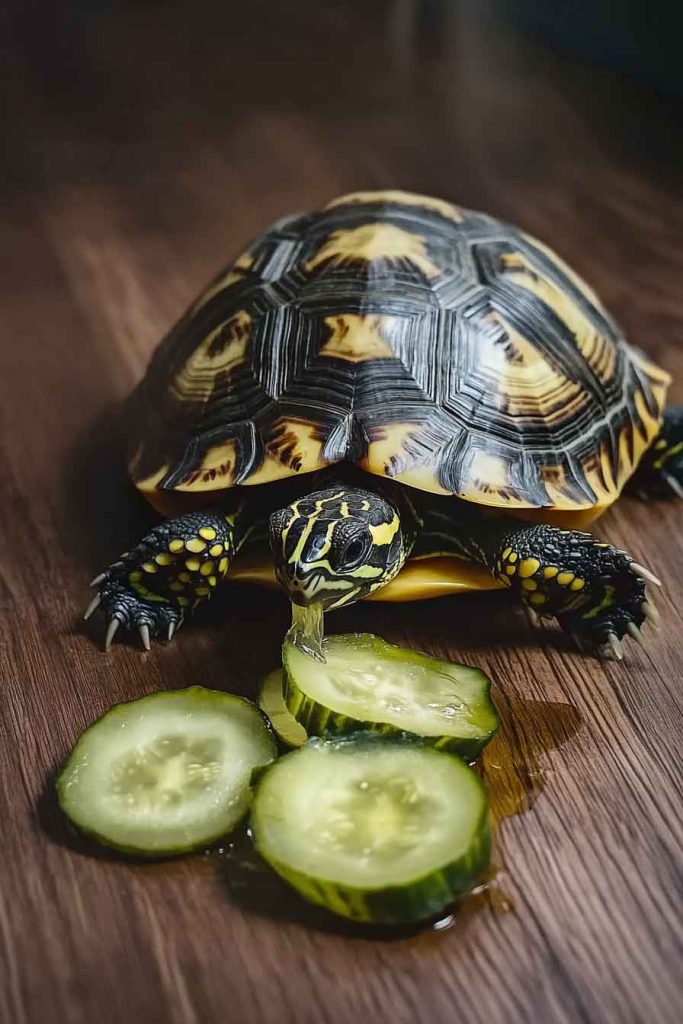
Frequently Asked Questions (FAQs)
Can Box Turtles Eat Pickles?
Box turtles are particularly sensitive to sodium, making pickles even more dangerous for them than other turtle species. The high salt content can cause severe kidney damage in box turtles. Never feed pickles to box turtles.
Can Red-Eared Slider Turtles Eat Pickles?
Red-eared sliders are semi-aquatic and have slightly different dietary needs, but pickles are still completely toxic to them. The sodium content can disrupt their internal salt balance, which is crucial for their aquatic lifestyle. Absolutely avoid giving pickles to red-eared sliders.
Can Painted Turtles Eat Pickles?
Painted turtles have the same physiological restrictions as other turtle species when it comes to processing high-sodium, acidic foods. Pickles pose the same serious health risks to painted turtles, including dehydration, kidney damage, and digestive problems.
What About Sugar-Free or Low-Sodium Pickles?
Even “healthier” versions of pickles are still dangerous for turtles. Sugar-free pickles often contain artificial sweeteners that are toxic to reptiles, and low-sodium still means high-sodium by turtle standards. The vinegar content alone makes any pickle unsuitable for turtles.
Can Turtles Eat Pickle Juice?
Pickle juice is actually more concentrated in harmful substances than the pickles themselves. Never give pickle juice to turtles – it’s essentially a concentrated salt and acid solution that can cause immediate poisoning.
Conclusion
After researching and writing about this topic extensively, I hope I’ve made it clear that pickles and turtles simply don’t mix. The combination of excessive sodium, harmful acids, chemical preservatives, and wrong mineral ratios makes pickles one of the most dangerous human foods you could give to a turtle.
As turtle owners, our job is to protect these amazing creatures from harm, even when they don’t know what’s dangerous for them. I keep my pickles in sealed containers, away from my turtle’s habitat, and I make sure anyone who visits knows not to share human food with my turtle.
Remember, there are so many safe, healthy foods that your turtle will love. Fresh vegetables, appropriate greens, and occasional fruit treats will keep your turtle happy and healthy for years to come.
If you’re ever in doubt about whether a food is safe for your turtle, the safest answer is always “no” until you can research it thoroughly or consult with a reptile veterinarian. Trust me, it’s better to be overly cautious than to risk your turtle’s health.
Your turtle depends on you to make the right choices for their diet. Let’s keep our shelled friends safe, healthy, and pickle-free!

